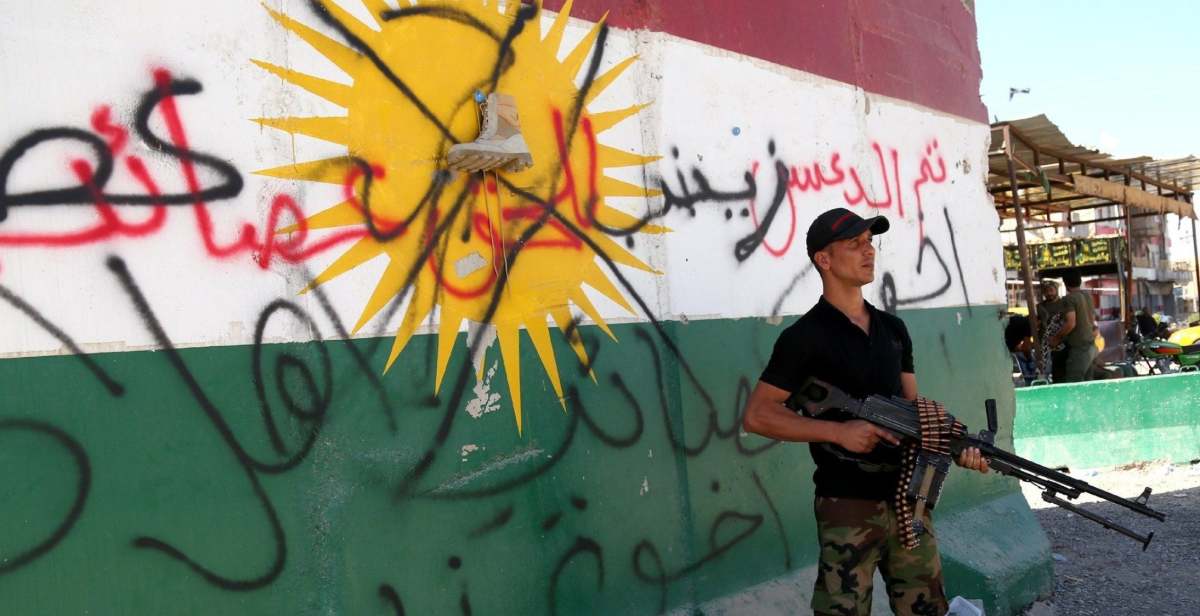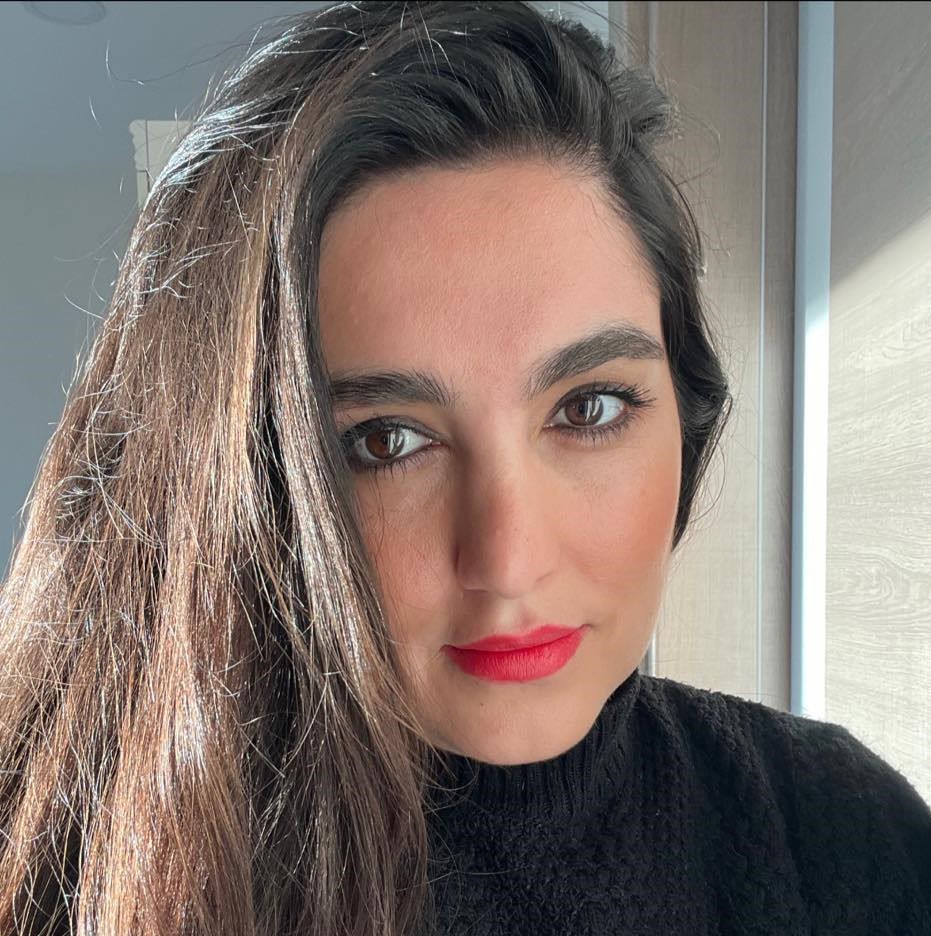Contesting Kirkuk: Protest & Bloodshed
By Dr. Hawzhin Azeez
The city of Kirkuk (Kerkûk in Kurdish) holds a special place in the hearts and imaginations of many Kurds, which is why it is referred to as “The Kurdish Jerusalem” or “Our Jerusalem.” Moreover, because of its immense untapped oil wealth, the city has been viewed as the key puzzle piece to one day funding an independent Greater Kurdistan. But it is exactly this immense potential of Kirkuk’s resources, which has led to all of the regional players revising the history and attempting to erase the Kurdish history and reality of the city.
Most recently, ethnic tensions remain at an all-time high in the contested city of Kirkuk following a number of deadly clashes over the past week. According to local news sources at least four protestors have been killed, and thirteen more have been injured as a result of violent clashes between Arab and Kurdish civilians in the past 24 hours. The murdered Kurdish victims are identified as Hawkar Ebdullah, Hisên Sabîr, Heval Star, and Hawrê Ekber. The protests erupted over plans to hand over a security building to local authorities.
Iraqi Prime Minister Mohammed Shia al-Sudani imposed an overnight curfew in attempts to curb the erupting ethnic violence. Masoud Barzani, the former head of the KDP (Kurdistan Democratic Party) strongly condemned Baghdad for failing to anticipate and effectively control the erupting violence in the city. Likewise, the Kurdistan Regional President, Nechirvan Barzani stated on Saturday:
“The blockade of the Erbil-Kirkuk highway in the past six days was illegal. Unfortunately, this illegal act has not been addressed by the Kirkuk administration yet. Kirkuk needs the implementation of the law and the constitution, and does not need more illegal activities.”
He went on further to add that:
“While we look at the security tensions with great concern, and closely monitor the situation, we strongly condemn the shooting and the use of live ammunition against civilian demonstrators. Inciting chaos in Kirkuk poses a serious threat to coexistence, security and stability.”
For their part, a number of other politicians from the PUK (Patriotic Union of Kurdistan) called for an immediate ceasefire of the conflict and for calm and de-escalation.
Tensions rose to an all-time high following the attempts by Iraq’s federal government to return a security building to the KDP, which the Iraqi armed forces had been using as a military base since their re-entry into the city back in 2017. The strategic building, located at the Kirkuk-Erbil road, housed the Iraqi military’s Joint Operations Command (JOC) center.
The efforts by Iraq’s central government were ostensibly intended to foment good-will with the Kurdistan Regional Government (KRG) following months of tensions over oil revenue, disarmament of anti-Iran Kurdish armed factions in the north, and government salary payments amongst other issues. In response, Arab and Turkmen factions, primarily consisting of members of the Iran-backed Asaib Ahl al-Haq militia (Khazali Network) and their supporters attempted to prevent the Kurdish return to the building by holding a sit-in and setting up a camp with barriers outside of the building last week.
Four days of protests and blockade of the Erbil-Kirkuk highway ensued, which effectively created a boiling pressure point in the multi-ethnic city. Tensions finally came to a head on Saturday as Kurdish protestors, angered by the response of the Arab and Turkmen factions, approached the building. In response, the Iraqi security forces and the Popular Mobilization Forces (PMF) fired live bullets at the Kurdish demonstrators. Kurdish protestors were seen chanting pro-Kurdish slogans including “Kirkuk is Kurdistan,” as several vehicles burned and repeat gunshots were heard throughout multiple neighborhoods.
Kirkuk is a deeply contested city and remains a site of Arab-Kurdish tensions. Historically both the semi-autonomous Kurdish region in the north as well as the central government in Baghdad have claimed authority over the oil-rich city. In the fight against ISIS the Kurds had managed to drive out the terrorist organization and retain control over the city in 2014. However, emboldened by their success against ISIS as Iraqi security forces retreated and floundered in response, and the ensuing global praise towards the Kurd’s courage in driving ISIS back the then President of KRG, Masoud Barzani held an independence referendum in 2017. The Iraqi government, angered by this move and fearing Kurdish aspirations to annex Kirkuk, sent waves of military and armed forces to the contested city and essentially drove the Kurdish forces out. Both the Iraqi Turkmen Front as well as the Arabic Coalition, headed by the current governor of Kirkuk since 2017, have been strong opponents of allowing KDP to return to the city. The arrangement has fueled Kurdish fears and ethnic tensions further.

Although the various ethnic groups accuse each other of current oppression and discrimination, the history is fairly clear. Under Saddam, in order to Arabize Kirkuk, Kurds were expelled (or coerced into changing their nationality to Arab), and many Arab families were settled in their place with generous financial and economic incentives and the date of their settlement falsified in the population registry. To permanently remove Kurdish claims to Kirkuk, Baghdad built thousands of homes for Arabs to reside in the province, banned Kurds from buying homes, and deported 250,000 Kurds to the southern desert of Iraq.
With no reliable census held since 1957 (which showed Kurds were 48% of the population and Arabs only 28%) in the city, and following consecutive Arabization policies by Saddam’s Ba’athist regime, bold statements of ownership and belonging to the city are rife. The US invasion of Iraq complicated matters for worse by demarcating Kurdish and Arab fault lines further, but leaving contested cities such as Kirkuk unresolved.
Article 140 of the Iraqi Constitution established a three-phase process to address this issue by 2007. The three-phase plan called for efforts at the normalization of the city, involving the reversal of the Arabization of the population by the Ba’athist regime, a census to determine the ethnic makeup of the city, as well as a referendum to allow the citizens to determine their attachment to either the KRG or Iraq. None of these phases have been implemented, while both the KRG and the Iraqi federal government have failed to take responsibility for the development of the city, with each refusing to take on the massive development efforts required to develop its economy and its utilities or service its infrastructure.
For years, Kurdish villagers around Kirkuk have argued that they have been targets of recent ethnic cleansing campaigns and harassment from various Iranian-backed Iraqi militias as well as Arab tribes. Historical tensions and enduring fears over the Arabization policies of the Ba’athist regime under Saddam Hussein still remain rife in the psyche of the Kurds in the city. To make matters worse, and adding to the high level of instability, ISIS sleeper cells still remain active in the surrounding provinces.
To add more complexity to the ethno-religious tensions in the city, Iranian backed militias have become increasingly aggressive and emboldened in the city, using such power to deepen sectarian cleavages in the volatile city and terrorizing the Kurdish community further. In support, Iran engages in regular use of rockets against the city to target gas fields on the Kirkuk-Silêmanîya highway, which is under the authority of the Kurds.
Since his election, al-Sudani has endeavored to smooth over Kurdish-Arab tensions, but it appears that the ethnic fault lines remain far more entrenched than anticipated. The handover of the security building back to KDP was supposed to occur ahead of local elections in the KRI on December 18, 2023.
The overnight curfew imposed by the Iraqi Prime Minister effectively reduced the tensions with the Erbil-Kirkuk highway re-opening to traffic and the curfew lifted at 8:30 am on Sunday morning. Al-Sudani soon after called for an urgent commission of inquiry into the clashes and pledged that the responsible parties would be “held accountable”. Yet it appears unlikely that these deep rooted ethno-religious tensions could be resolved without concrete local and regional government, seeking out community consensus, dialogue, and arbitration.
According to the International Crises Group:
“Finding an equilibrium that satisfies Kirkuk’s three main ethnic groups by ensuring that none dominates the security apparatus at the others’ expense is a fundamental condition for the area’s stability. Only such a configuration will ensure peaceful coexistence and help prevent a resurgence of the Islamic State.”
What this equilibrium looks like appears unclear, as not only the history of the city, but its competing claims by the three main groups of Kurdish, Arab and Turkmens, backed up by the presence of armed militias, create a tinderbox that can be ignited at any moment.
For instance, Kirkuk also features prominently in the irredentist neo-Ottoman aspirations of Erdoğan’s regime in Turkey, with the Turkish Foreign Minister this week referring to the city as the “ancestral homeland of our Turkmen kin.” Notably, Turkey’s Foreign Minister went on to cynically state that his regime wants to “ensure equal representation” of minority Turkmen in governing the city, despite the fact that they do not extend such ethnic principles to their own persecuted and marginalized Kurdish population within Turkey.
More broadly, the example of Kirkuk is emblematic of the ongoing and unresolved historical tensions in a country whose very foundation as a nation-state has been built on marginalization and outright ethnic cleansing efforts of the central historically Sunni-dominated government. The genocidal Anfal Campaign in the 1980’s against the Kurds, the Ba’athist effort to eradicate and limit Shi’ite Arab discontent and its religious leadership, the aggressive Arabization of the Kurds and other non-Arab communities including mass deportations of Kurds to Iran remain open wounds that continue to fester and propagate wide discontent and mistrust between communities as well as towards the government. Additionally, the years of political instability, corruption, and factionalism within the various political parties since the 2003 invasion of Iraq by the United States, at a local and regional level has only added further tension and violence to the detriment of long suffering citizens in the country. But Kirkuk must not be allowed to mutate into a bargaining chip between Tehran, Baghdad, and Ankara to jointly prevent Kurdish self-determination.
It remains to be seen how the ethno-sectarian tensions will play out in Kirkuk. However, one thing is clear, so long as contested territories such as Kirkuk remain unresolved, violence and tensions will continue to foment and escalate as local agency is reduced even further. There must also be recognition and acknowledgment of the city’s true Kurdish history. Allowing the Arabization campaigns of Saddam to become permanent is not a recipe for healing wounds. Furthermore, attempts to return homes and lands to their original Kurdish owners who had them confiscated is not “discrimination”, but redressing a historical wrong and an attempt at restorative justice. Ethnic co-existence is possible, but truth is a precondition in building trust in the fairness of any political order.




Comments are closed.